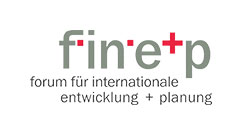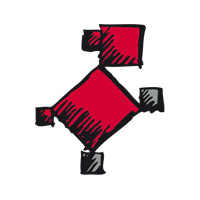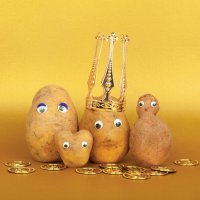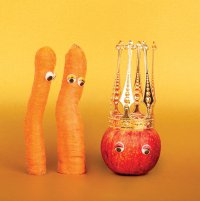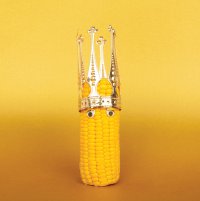Nature Trail 2: Treasure food!
In the FarmWorlds project, finep develops several nature trails in cooperation with agricultural businesses. These show the interplay between local and global agriculture using a variety of food products as examples and provide tips for sustainable food consumption.
The second nature trail is dedicated to one of the most valuable items for us humans: our food! It consists of three stations with hinged treasure chests and is currently located at the Haldenhof in Beuren.
Food: the substance of life
Have you ever wondered where your potatoes come from, who harvested them and whether these people can make a good living from this work? What is good food worth to you?
Every year in Germany alone, around 10 million tons of food end up in the garbage - that's 313 kilos per second. And a large part of this waste is caused by us buyers ourselves. Yet food is far too valuable to be thrown away, since hidden behind its production, there is both a lot of work and resources. A kilo of domestic stored potatoes for example, requires 119 litres of water, which is equivalent to a full bathtub. A lot more water is required when it comes to imported potatoes from regions where water is scarce: new potatoes from Egypt require around 428 litres of water per kilo.
Let's not judge food by its appearance and price! They are the substance of life - for us and the people who produce them.
Living from agriculture
Around a third of the world's populations’ livelihoods depends on agriculture. The vast majority of these people are small farmers in the global south. They cultivate small areas of arable land, whilst making a major contribution: around 500 million smallholder farms produce around 80 percent of the food consumed worldwide. But the farmers in the Global South and their colleagues in Europe are struggling with major problems. In Europe, many small farms have to shut down in the face of international competition due to high price pressure. Worldwide, more and more arable land is being bought or leased as a high-yield capital investment.
Farmers must be able to make a living from their work! This requires fair food prices.
Hunger in times of abundance
Agriculture is more productive than ever: with the amount of calories currently produced, even more people could be fed than live on earth today. Nevertheless, 2 billion people are affected by malnutrition. Combating hunger is thus a question of fair distribution. The problems associated with the current distribution system are illustrated by the example of corn. Worldwide, more than one billion tons are produced annually - a huge quantity that could feed many people. But a large portion of this crop is fed to animals to satisfy the growing demand for meat, or ends up as "biofuel" in car tanks. As a result, demand for corn is sometimes higher than supply, driving up prices worldwide. In addition, the stock markets speculate on falling or rising corn prices. As a result, many people in countries of the Global South may find their staple food, corn, unaffordable.
And what does this have to do with us consumers?
- You can combat food waste by buying food conscientiously and preserving it by freezing or using it creatively. Recipes for leftovers can be found, for example, at www.zugutfuerdietonne.de.
- Through the foodsharing initiative, you can get involved in saving and sharing food: www.foodsharing.de.
- By purchasing food directly from producers, e.g. at weekly markets or farm shops, we can ensure that they get a reasonable price for their work and that we get particularly fresh seasonal products..
- When buying products such as coffee or bananas that do not grow here, we can pay attention to fair trade labels. They guarantee fair wages and fair working conditions. An overview of the labels can be found, for example, at www.siegelklarheit.de.
- The international movement Slow Food is committed to the appreciation of food: www.slowfood.de.
- Every year in January a broad coalition organizes the rally "We are fed up!" Thousands of people come together in Berlin and stand up for good food and good agriculture: www.wir-haben-es-satt.de.
- Solidarity Agriculture (Solawi) projects allow consumers to join forces with a farm thus taking joint responsibility for food production. Information and opportunities to participate: www.solidarische-landwirtschaft.org.
- At the World Food Summit in 1996, the small farmers' organisation La Via Campesina presented the concept of food sovereignty. It evokes the right, that all people have, to healthy, regional food that is produced and distributed without exploiting the environment or people. Groups such as Nyéléni are committed to this goal worldwide and regularly organise events: www.nyeleni.de.
- The costs and negative consequences of food waste on our environment are presented in this short FAO video about the "Food Wastage Footprint" Food Wastage Footprint
- The film TASTE THE WASTE is all about food waste.
- Valentin von Thurn explores in his film 10 Milliarden – Wie werden wir alle satt? the most important principles of food production.
- The film Bauer unser deals with the situation of farmers in Europe..
You can find more information about the Farmworlds project and the other nature trails here.
The project is funded by ENGAGEMENT GLOBAL on behalf of the German Federal Ministry for Economic Cooperation and Development (BMZ) and with funds from the Protestant Church Development Service.
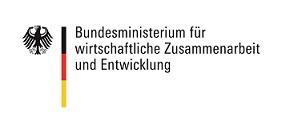 | ||
